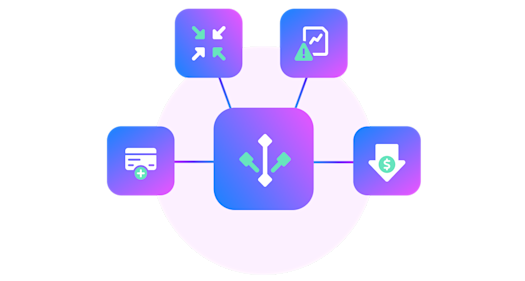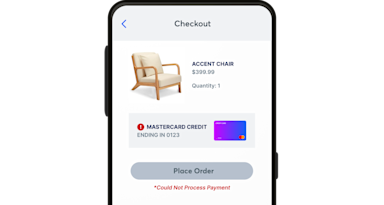It depends…
When we work with merchants at VGS, they may work with one, a few, or multiple PSPs. Or, they may be in transition and moving to add multiple PSPs.
Although each merchant's situation can be unique, here are a few guidelines.
WORK WITH A SINGLE PSP
You may be just getting started accepting payments. If that's the case, you want to maintain control of your payment data for future pricing leverage or when you add new PSPs to your tech stack. A third-party Vault enables you with data portability so you can retain your independence but you don't really need a Payment Orchestrator yet.
An exception would be if you are building businesses in certain verticals. High-risk merchants, loyalty vendors, or B2B players may need more control and support for their niche use cases and should consider multi-PSP strategies and optimization sooner rather than later.
SUMMARY
Yes Vault, No Orchestration
WORK WITH A FEW PSPS
If you choose to work with a few PSPs, less is more. We see merchants wanting to quickly add multiple PSPs when, in reality, they may not need more than 3-5. In such a situation, we recommend optimizing for flexibility and independence. We suggest maintaining a few PSP relationships but going really deep on each integration.
At this stage, if you use a single PSP's vault and orchestration solutions, you will be dependent on that PSP to access your cardholder data. This will impact the flexibility you are looking for and create some limitations. Single-provider solutions tend to rely on Vault APIs that are technically very limited. They may also show anti-competitive concerns when asked to forward data, limiting your access and impeding your business objectives.
A better option here would be to add a PCI-compliant third-party vault to your payments stack so you can still own your sensitive data and derive utility from it without taking on the liability of it touching your systems.
SUMMARY
Yes Vault, No Orchestration
WORK WITH A LOT OF PSPS
If this describes you, then it makes sense to invest in orchestration. This tends to be the case for large multinational merchants. A common situation that gives rise to this is having payment volume in multiple countries and needing a patchwork of local PSPs to achieve the required results. Merchants are taking a regional focus for PSPs and orchestrators to offer local payment methods, increase conversion, optimize routing efficiency, and maximize authorization rates. Larger global footprints create the need for more PSPs; hence, global merchants may need multiple orchestrators.
But the more orchestrators you add, the greater the need to orchestrate those orchestrators. This is a key benefit of a third-party vault. Instead of being driven by your payment orchestrators' business, you have the freedom to place your payments where they fit your business best and not your provider's. You can also add or change providers as your needs change to achieve scalability that matches your business growth.
You may have moved to an orchestrator to add more flexibility to your payment infrastructure. However, if you now need to manage multiple orchestrators, the need to house your data in a separate and secure vault is as crucial as ever.
SUMMARY
Yes Vault, Yes Orchestration
*Orchestrators primarily focus on payment processing orchestration. Critical orchestration needs like fraud and risk management will require their own connectivity.
Why Add A Vault?
A Token Vault offers a secure PCI-compliant platform that protects sensitive financial and personal information, such as credit card details (PAN), bank account numbers, and social security numbers. Sensitive data is replaced with randomized tokens that can process payments without exposing the underlying information. Typical benefits are ownership, enhanced security, fraud mitigation, breach protection, and PCI compliance.
However, great vaults also orchestrate how data is transmitted out of the vault. This goes significantly beyond data security and storage.
When you run your orchestration from a processor-agnostic third-party token vault, you:
- Maintain your Integrations - With our proxy-enabled vault, you have direct integrations with your existing PSPs. If you have an existing integration to an end-point, VGS can proxy the payment requests using your existing rails. When you work with a payment orchestrator, they own the integration, but VGS doesn't need to do so. With VGS, you can have direct connections instead of relying on your orchestrator to maintain and support the integrations with your processors and gateways.
- Achieve Redundancy and Customer Experience - When you are in charge of your payments orchestration strategy, you can achieve PSP redundancy. You don't have a single point of failure problem since you have mitigated the risks of a provider going down and avoided an impact on your end-user experience.
- Obtain Added Value - VGS also offers processor-agnostic Network Tokens and Account Updater. By adding these, you can get greater value from your data. As an added benefit of data ownership, these products help to reduce fraud, increase authorization rates, and lower your costs since you only need to purchase them once from VGS rather than individually from each processor.
- Get Pricing Power - Holding your data lets you retain any negotiated pricing you might have with your providers. Our transparent proxy passes your data as is to your processors and does not combine it, as an API-based provider might, with other customers who may have riskier profiles and, therefore, higher pricing.
At the same time, all the inherent benefits of a Vault still apply -
- Security - Even as you retain charge of where to orchestrate your payments, you continue to eliminate a typical concern - the risk of a data breach - by moving your data to a third-party vault and holding it in tokenized form.
- PCI Compliance - If you want to achieve PCI Level 1-4 compliance, VGS helps you enable that. You own and can analyze your data without the accompanying liability of touching sensitive data.
- Operational Ease - With a dedicated vault, you can centralize your data across multiple payment methods, gateways, and processors, to significantly simplify operations and reduce administrative overhead.
In Summary:
If you are working with a single PSP, a Vault enables you to build your payment stack with data portability and the flexibility to add new PSPs from the start.
If you are large and working across multiple PSPs and orchestrators, check if you aren't now taking on the added burden of orchestrating the orchestrators.
Our Vault enables customers to derisk the potential of a breach and achieve PCI compliance, but that's just the start.
The larger benefit is achieving control of your data by housing it in a separate dedicated vault to maintain data ownership and orchestrate your payments to best match your business needs.
Contact Us




